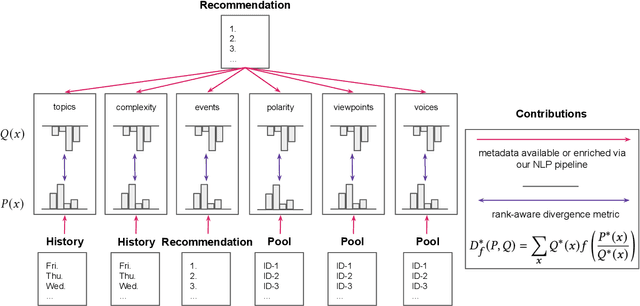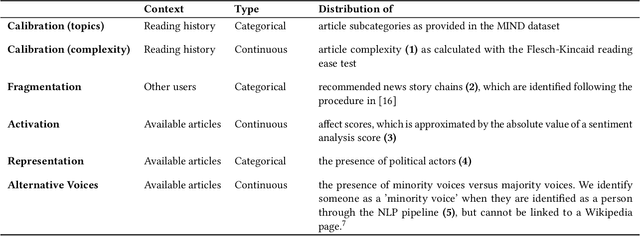Mateo Gutierrez Granada
VideolandGPT: A User Study on a Conversational Recommender System
Sep 07, 2023



Abstract:This paper investigates how large language models (LLMs) can enhance recommender systems, with a specific focus on Conversational Recommender Systems that leverage user preferences and personalised candidate selections from existing ranking models. We introduce VideolandGPT, a recommender system for a Video-on-Demand (VOD) platform, Videoland, which uses ChatGPT to select from a predetermined set of contents, considering the additional context indicated by users' interactions with a chat interface. We evaluate ranking metrics, user experience, and fairness of recommendations, comparing a personalised and a non-personalised version of the system, in a between-subject user study. Our results indicate that the personalised version outperforms the non-personalised in terms of accuracy and general user satisfaction, while both versions increase the visibility of items which are not in the top of the recommendation lists. However, both versions present inconsistent behavior in terms of fairness, as the system may generate recommendations which are not available on Videoland.
RADio -- Rank-Aware Divergence Metrics to Measure Normative Diversity in News Recommendations
Sep 17, 2022



Abstract:In traditional recommender system literature, diversity is often seen as the opposite of similarity, and typically defined as the distance between identified topics, categories or word models. However, this is not expressive of the social science's interpretation of diversity, which accounts for a news organization's norms and values and which we here refer to as normative diversity. We introduce RADio, a versatile metrics framework to evaluate recommendations according to these normative goals. RADio introduces a rank-aware Jensen Shannon (JS) divergence. This combination accounts for (i) a user's decreasing propensity to observe items further down a list and (ii) full distributional shifts as opposed to point estimates. We evaluate RADio's ability to reflect five normative concepts in news recommendations on the Microsoft News Dataset and six (neural) recommendation algorithms, with the help of our metadata enrichment pipeline. We find that RADio provides insightful estimates that can potentially be used to inform news recommender system design.
 Add to Chrome
Add to Chrome Add to Firefox
Add to Firefox Add to Edge
Add to Edge